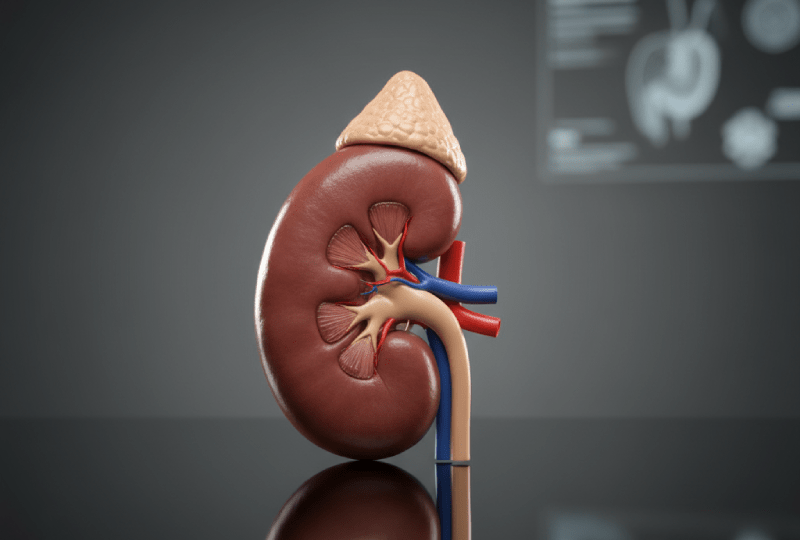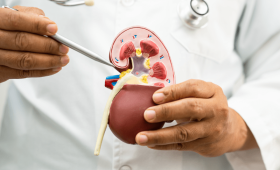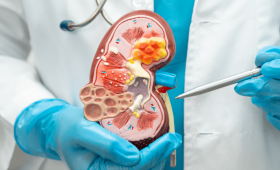What Is a Kidney Transplant and Why Is It Done?
A kidney transplant is a surgical procedure that transplants a healthy kidney to patients with end-stage renal failure. This procedure aims to eliminate or reduce the patient’s dependence on dialysis, improve their quality of life, and extend their life span. The transplant is performed by placing a new kidney from a healthy donor in place of the patient’s kidneys, which have lost their function. In this way, the new kidney begins to perform vital functions such as cleaning the blood and producing urine.
How Does the Kidney Transplant Process Start in Turkey?
The kidney transplant process in Turkey first begins with an evaluation by a nephrology specialist. After it is decided whether the patient is suitable for a transplant, potential live donors are searched. If a live donor cannot be found, the patient is registered on the deceased donor waiting list. In the case of a live donor, a series of medical and psychological tests are performed on both the patient and the donor. These tests are vital to ensure that the health of both the recipient and the donor is suitable for the transplant before the procedure.
How Much Does a Kidney Transplant Cost in Turkey?
The cost of a kidney transplant in Turkey varies depending on many factors. Prices at private hospitals may be higher than at foundation or state hospitals. The main factors affecting the cost include the surgical team’s experience, the hospital’s technological infrastructure, the duration of the post-operative stay, and the medications used. In general, the costs in Turkey are quite economical compared to Western countries. The most accurate way to get detailed and clear cost information is to contact the chosen hospital directly.
How to Find the Most Suitable Donor for a Transplant?
The most suitable donor for a transplant is generally chosen from among the patient’s close relatives. The donor candidate is evaluated based on blood type and tissue (HLA) compatibility with the patient. First-degree relatives (mother, father, siblings) are among the best candidates. If a live donor cannot be found, the patient is placed on the deceased donor waiting list. Finding a live donor speeds up the transplant process and prevents complications that the patient might experience during long waiting periods.
What Documents Are Required for a Kidney Transplant?
A series of documents are required from both the recipient and the donor for a kidney transplant. These documents include a photocopy of the ID, blood type and tissue compatibility reports, a notarized document showing that the donor is a volunteer, a marriage certificate, and official papers proving kinship. In addition, a report showing that the donor is psychologically ready for this process may also be required. These documents guarantee the transparency and suitability of the legal process.
Do Hospitals in Turkey Have International Accreditations?
Yes, many private and university hospitals in Turkey have accreditations that prove they provide services at international standards. The most well-known of these accreditations is JCI (Joint Commission International). These documents show that the hospital meets certain standards in terms of medical quality, patient safety, and operational excellence. For foreign patients, these accreditations are an indicator that they will receive reliable and high-quality service.
How Long Does a Kidney Transplant Surgery Take?
The duration of a kidney transplant surgery can vary depending on the health condition of the patient and donor and the complexity of the surgery. Generally, the surgery takes between 3 and 5 hours. After the surgery, the donor usually stays in the hospital for 2-3 days, and the recipient stays for 5-7 days. These periods may be longer or shorter depending on the success of the surgery and the general recovery speed of the patients.
How Much Are Post-Transplant Medication Costs?
After a kidney transplant, the patient must use immunosuppressive (immune system-suppressing) medications for life to prevent the body from rejecting the transplanted kidney. These medications are vital for transplant success. The cost of medications varies depending on the brand and dosage. Although medication prices in Turkey are generally more affordable than in Western countries, this is a long-term cost, and it is important for patients to include this expense in their budget planning.
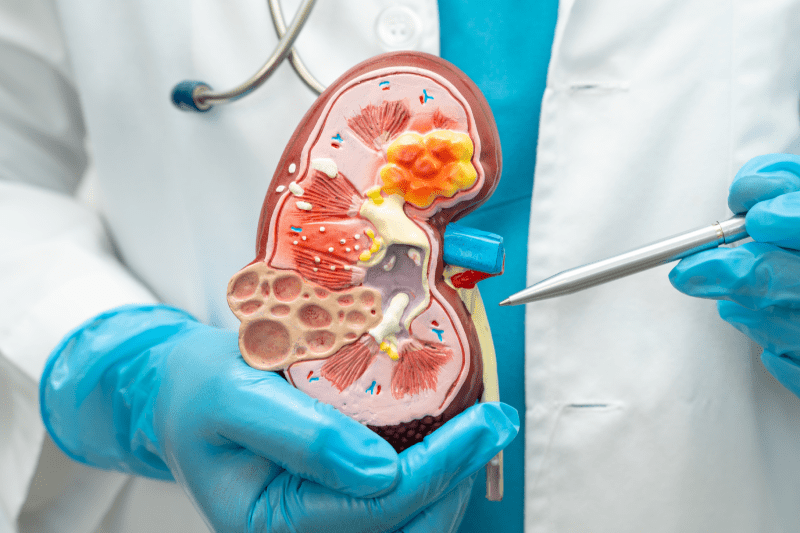
What Are the Kidney Transplant Success Rates in Turkey?
Turkey has success rates for kidney transplants that are above international standards. Especially in transplants from live donors, the one-year patient and organ survival rates are generally over 95%. These high rates are directly related to the experience of the surgeons, the modern technological infrastructure of the hospitals, and the meticulous care provided after the surgery. When choosing a hospital, it is important to ask about the success rates of the relevant center and to verify this data.
How to Identify the Best Doctors for a Kidney Transplant?
Identifying the best doctors for a kidney transplant requires comprehensive research. The doctor’s career history, area of expertise, the hospital they work at, and the number of transplant operations they have performed are of critical importance. Additionally, feedback and success stories from patients who have been treated by that doctor can also be guiding. Most specialists participate in international conferences and have scientific publications, which shows their level of knowledge and experience.
How Does the Live Donor Transplant Procedure Work?
The live donor transplant procedure begins with the donor and recipient undergoing a series of medical tests. These tests include blood type and tissue compatibility, kidney function tests, and a psychological evaluation. The health of the live donor is as important as the health of the recipient. The ethics committee confirms that the donor is donating completely voluntarily and without any financial gain. After this approval, the surgeries are performed simultaneously or at short intervals.
How Long Is the Waiting Period for Deceased Donor Transplant?
The waiting period for a deceased donor transplant in Turkey can be long due to the low number of organ donations. This period varies depending on factors such as blood type, tissue compatibility, waiting time, and the patient’s medical condition. Generally, the waiting period can range from a few months to several years. To be placed on the deceased donor waiting list, all medical tests must first be completed, and patient suitability must be approved.
How Does the Kidney Transplant Process Work for Foreign Patients?
The kidney transplant process for foreign patients takes place with the donor generally brought from their own country. The hospitals’ international patient units can assist the patient and donor with visa procedures and provide necessary invitation letters. The donor and recipient come to Turkey for pre-transplant tests, and the ethics committee approval process begins. After all approvals are received, the operation is performed, and the patient stays in Turkey for a few weeks for post-transplant recovery.
What Is the Suitable Age Range for Kidney Transplant Surgery?
There is no definitive age range for a kidney transplant. What is important is the patient’s general health condition rather than their chronological age. The transplant can be successfully performed in a wide range of patients, from childhood kidney failure to old age. The transplant team evaluates whether the patient can withstand the stress of the surgery and the post-operative recovery process.
How Advanced Are the Technologies Used in Kidney Transplant?
Kidney transplant centers in Turkey are investing in modern and advanced medical technologies. Minimally invasive methods such as laparoscopic (closed surgery) and robotic surgical techniques are frequently used. These technologies provide less pain, faster recovery, and smaller surgical scars for donors. Additionally, 3D imaging and digital planning systems are also widely used to increase the success of transplant operations.
How Is the Donor’s Health Guaranteed?
The donor’s health is the highest priority in the transplant process. Donor candidates undergo very comprehensive tests to guarantee that kidney donation will not pose any risk to their own health. In addition, it is confirmed that the donor is donating the organ voluntarily, is psychologically ready for this decision, and is not under any financial pressure. The donor’s health is closely monitored with regular check-ups after the surgery.
What Are the Necessary Pre-Transplant Tests?
A series of tests are performed for both the recipient and the donor before a kidney transplant. These tests include blood type and tissue compatibility (HLA typing) tests, as well as comprehensive blood tests, urine analyses, EKG, chest X-ray, ultrasound, and tomography imaging tests. Additionally, infectious disease screenings and psychological evaluations are also performed. These tests are of vital importance for the transplant procedure to be performed safely.
How Is the Post-Transplant Follow-up Process Carried Out?
The post-transplant follow-up process is one of the most critical stages for transplant success. Patients stay in or near the hospital for the first few weeks or months after the operation. During this process, they are closely monitored by doctors. After the patient returns to their country, they continue follow-ups in collaboration with a local nephrology specialist. The Turkish hospital supports this process by providing all necessary reports and contact information.
Which Are the Most Popular Cities for Kidney Transplants?
The most popular cities for kidney transplants in Turkey are generally large cities like Istanbul, Ankara, Izmir, and Antalya. These cities stand out with their modern hospital infrastructure, experienced surgeons, and transplant centers that provide services at international standards. Additionally, their easy access for international flights is a great advantage for foreign patients. The hospitals in these cities offer advanced services in the field of medical tourism.
How Is Confidentiality Maintained in Organ Transplantation?
Patient and donor confidentiality are legally and ethically protected during the organ transplant process. The hospital and healthcare staff are obligated to keep personal and medical information confidential. The identities of the donor and recipient are kept confidential unless they need to be aware of each other outside of legal processes. This is of vital importance to ensure patient-doctor trust and to prevent any discrimination or illegal activity.
What Are the Post-Transplant Nutrition and Lifestyle Changes?
After a kidney transplant, patients must make important nutrition and lifestyle changes to maintain a healthy life. Especially in the first months, a hygienic diet is important to reduce the risk of infection due to immunosuppressive medications. The nutrition program recommended by the doctor should be followed to reduce the side effects of medications and protect kidney health. Regular exercise and healthy lifestyle habits also support the recovery process.
When Should One Go to Turkey for a Kidney Transplant?
The time to come to Turkey for a kidney transplant is determined after the patient and donor have completed all preliminary tests and legal documents. Most of the time, a schedule is created by communicating with the hospital’s international patient unit before coming to Turkey. This ensures that all processes proceed smoothly and as planned. Apart from emergencies, a planned transplant process is preferred.
How Are Post-Transplant Complications Managed?
Potential post-transplant complications are managed under close supervision by the hospital. The most common complications include organ rejection or infections. Early diagnosis and intervention ensure that these complications are treated successfully. Patients are educated on how to recognize possible complication symptoms and report them to the doctor immediately. The hospital also provides support for such situations after the patient returns to their country.
Is Deceased Donor Transplant Possible in Turkey?
Yes, deceased donor kidney transplants are also legally performed in Turkey. However, the number of deceased donors is lower than the number of live donors, and the waiting list process can be longer. Patients must be registered on the National Coordination System (UKM) for deceased donor transplant, and the ranking is determined by medical priority. This is a vital process to ensure the organ reaches the patient who needs it most.
How Is the Total Cost of the Treatment Calculated?
The total cost of kidney transplant treatment is not limited to the surgery fee alone. In addition, all items such as all pre- and post-operative tests, medications, hospital stay duration, companion accommodation costs, travel, and visa expenses should be taken into account. A detailed cost breakdown from the hospital’s international patient unit helps with the most accurate budget planning.
Is Medical Travel Insurance Important?
Yes, medical travel insurance is extremely important for patients traveling to Turkey for a kidney transplant. This insurance provides financial assurance for unexpected medical emergencies, post-operative complications, or a prolonged hospital stay. Before the surgery, it is necessary to ensure that this insurance covers the transplant operation and possible complications.
Is the Visa Process Complicated?
The visa process varies according to the patient’s nationality. While a visa can be obtained easily for some countries, a longer and more detailed process may be required for others. The hospitals’ international patient units help simplify the process by preparing all necessary medical documents and invitation letters during the visa application. It is important to learn all the necessary conditions for the visa application in advance.
Is There a Waiting Period for Kidney Transplant?
There is no waiting period for kidney transplants from live donors because the donor comes with the patient, and once compatibility is ensured, the surgery can be planned immediately. However, there are waiting lists for deceased donor transplants, and this process can be long due to the low number of organ donations. Therefore, live donor transplantation is a more common and practical solution.
In What Cases Is a Transplant Application Rejected?
A kidney transplant application can be rejected for medical or legal reasons. Medical reasons include the patient not being suitable for the surgery, incompatibility, or having additional diseases that would reduce the chance of success after the transplant. Legal reasons include doubts about the donor’s voluntariness, the inability to prove kinship, or suspicion of illegal organ trafficking. The ethics committee makes these decisions meticulously.
Are Hospitals and Doctors Aware of International Communication Rules?
Hospitals in Turkey that are large and accept international patients are highly competent in communicating with foreign patients. Doctors and healthcare staff can generally communicate in English and are trained in establishing a trust relationship between the patient and the doctor. If necessary, professional interpreters within the hospital facilitate the entire communication process and ensure the patient correctly understands medical information. This is a critical factor for the success of the treatment process.
What Conditions Must a Transplant Center in Turkey Meet?
A transplant center in Turkey must be licensed by the Ministry of Health and undergo regular inspections. The center must have an experienced surgical team, a suitable operating room, modern technological equipment, and intensive care units. It is also expected to offer additional patient care services such as psychological support and dietitian services. All these conditions ensure that the patient has a safe and successful transplant process.
Why Are Immunosuppressive Medications Important?
Immunosuppressive medications suppress the patient’s immune system after the transplant, preventing the body from perceiving the new kidney as “foreign” and rejecting it. These medications are mandatory for the kidney to continue functioning healthily in the long term. The dosage and types are determined by the doctor based on the patient’s condition and are monitored with regular blood tests. The regular and correct use of these medications is the most important element of transplant success.
What Are the Legal Conditions for a Transplant?
Kidney transplant in Turkey is legally regulated by Law No. 2238, “On the Procurement, Storage, and Transplantation of Organs and Tissues”. According to this law, voluntary and selfless donation from a live donor is essential for transplants. Additionally, the donor must be over 18 years old and of sound mind. An ethics committee approval is required for live donors who are not related. These laws aim to prevent organ trafficking and provide an ethical framework.
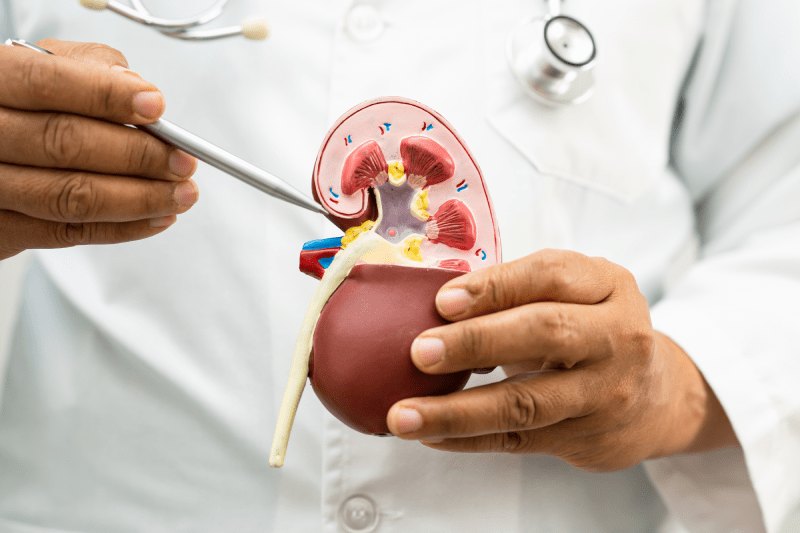
What Is the Quality of Life Like After a Kidney Transplant?
When a kidney transplant is performed successfully, it significantly improves the patient’s quality of life. Since the dependence on dialysis is eliminated, patients can live a more independent life, feel more energetic, and return to their social lives. Although medication use and regular check-ups remain part of life, there is a significant improvement in overall health and well-being. Patients can adopt a more normal lifestyle and get rid of the symptoms associated with dialysis, such as fatigue and weakness.
What Complications Can Occur After a Transplant?
Some complications can occur after a kidney transplant, but they can be managed with early diagnosis and treatment. The most common complications include organ rejection, infections, and medication side effects. Organ rejection occurs when the body perceives the new kidney as a foreign tissue and attacks it. Infections can be more frequent due to immunosuppressive medications. Doctors inform patients about these risks and symptoms and monitor their condition with regular check-ups.
Are Liver Transplants Also Performed in Turkey?
Yes, in addition to kidney transplants, Turkey is one of the leading countries in the world for liver transplants. Live and deceased donor liver transplants are successfully performed by expert surgical teams and in modern hospitals. The liver transplant process and costs are planned similarly to kidney transplants and vary depending on factors such as the patient’s condition, donor type, and hospital choice.
When Can I Return to Work After a Transplant?
The process of returning to work after a transplant depends on the patient’s general health condition and the nature of their job. Generally, patients experience a recovery period of a few weeks to a few months after the surgery. The full recovery and return to a normal life process depend on how well the patient’s body accepts the transplanted kidney and adapts to the side effects of the immunosuppressive medications. The doctor will provide the best advice on when the patient can return to work.
When Is the Best Time for a Kidney Transplant?
The best time for a kidney transplant can be considered when the patient’s general health condition is suitable for the transplant and when complications during dialysis or the start of dialysis begin to increase. Transplant is an ideal option to prevent the patient from being dependent on dialysis. Generally, the most suitable time for a patient to have a transplant is when their general health condition is good and they do not have any additional chronic diseases.
How Is Organ Transplant Ethics Maintained in Turkey?
Organ transplant ethics in Turkey are protected by the supervision of the Ministry of Health and strict legal regulations. Ethics committees meticulously examine every transplant case, especially those with non-related live donors. To prevent organ trafficking, it is confirmed that the donor’s donation is voluntary and selfless, and that they are psychologically and medically suitable for the donation. The media is also subject to legal regulations in this regard, and publications that encourage organ trafficking are prohibited.
How to Choose the Best Transplant Center?
When choosing the best transplant center, it is important to consider not only the cost but also the center’s experience, success rates, and patient satisfaction. The hospital’s international accreditations, the surgical team’s experience, and the quality of in-hospital services also play a decisive role in the decision-making process. If possible, it would be beneficial to look at the comments and experiences of patients who have had a transplant at that center before.
What Does Pre-Transplant Patient Preparation Involve?
Pre-transplant patient preparation includes both medical and psychological evaluations. Many factors such as the patient’s general health status, heart and lung functions, and immune status are examined. Additionally, it is evaluated whether the patient can adapt to post-transplant lifestyle changes and medication use. This comprehensive preparation increases the chance of a successful surgery and minimizes potential risks.
